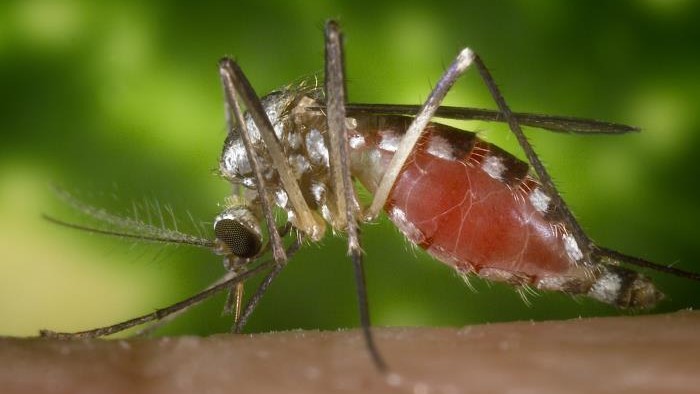Q&A: Poverty and Soda Consumption a Recipe for Obesity?
How can we stop Americans from getting fatter? The issue continues to cook up controversy as officials target soda's contribution to obesity. Recently New York Mayor Michael Bloomberg proposed preventing people who receive food stamps from using them to purchase soda and other sugary drinks.
Washington, D.C., officials led the way in May when they approved a 6 percent tax on such beverages. Most of the tax's impact will be on purchases by children and teens, because they drink the most sugary drinks . Meanwhile, nutritionists and activists across the nation have campaigned to wipe out "food deserts" — poor communities that are devoid of grocery stores offering healthy, fresh foods, leaving residents with little choice but to buy calorie-ridden convenience foods at local bodegas.
But will such measures work? MyHealthNewsDaily spoke to childhood nutrition expert Simone French, of the University of Minnesota School of Public Health, who was recently awarded a $7 million grant by the National Institutes of Health to co-direct an obesity prevention center.
Q: Is it really possible to link one food, like soda, to expanding waistlines? And how does poverty fit in?
A: The evidence is compelling that lower-income people have diets that are poorer-quality compared to higher-income people. Food pricing is an important issue. Cheap foods tend to be of less nutritional quality. Soft drinks are very inexpensive and provide a lot of calories for pennies. The evidence that soft drinks are linked to obesity has been reviewed about six times during the past few years. The most recent review concluded that soft drinks contribute only a small amount to obesity, but scientists differ in their interpretation of the evidence available.
Q: How could sweetened drinks cause a person to get fat? Is it just a matter of calories?
A: Sweetened beverages add calories to the daily energy intake and easily add up to too many. Some have argued that liquid calories do not send satiety signals to the brain as well as solid calories, and this may be part of the reason people can drink excessive calories in the form of sweetened beverages more easily than overeating food-based calories.
Sign up for the Live Science daily newsletter now
Get the world’s most fascinating discoveries delivered straight to your inbox.
Q: What does scientific evidence tell us about "food deserts"?
A: The concept of food deserts is interesting, but it has been difficult to show with actual data. Sometimes, there are food stores in lower-income areas but people may not shop there. Sometimes the food stores available have limited healthy selections; the fresh-produce quality is low and the price is high.
Q: What are your thoughts on the proposal to ban the use of food stamps to buy soda in New York City?
A: Although this policy question is highly politicized, as a public health professional and obesity prevention researcher, I believe that federal dollars should be used to support the purchase of only healthful foods among those who need food assistance. Soft drinks are a very clear example of a non-healthful food – pure sugar and no nutrients. Food stamps should be valid only for the purchase of foods and beverages that meet some agreed-upon nutrition criteria.
Q: What are your thoughts on a soda tax, and how does it differ from the potential food stamp regulation?
A: Soda tax is a user-tax that affects all purchasers of the beverages. I think it is also a reasonable policy strategy to discourage intake of beverages known to provide calories and no nutrition. Q: Should legislators take steps to make it more difficult for poor people to buy unhealthy food? A: Yes. Q: How much of a difference do you think taxes on junk foods will make in wiping out obesity?
A: It is known that obesity is caused by many different factors, each contributing a certain amount to what we observe as the obesity epidemic . Few informed people would think that any one action will "wipe out" the obesity epidemic.
Taxes on sugar-sweetened beverages may help decrease obesity through several pathways. One is to reduce the purchase of sugared beverages, because of the higher price that a tax will result in. Second, taxing sugar-sweetened beverages serves a social influence and education function. It sends a clear social message that these types of beverages are not healthful and may cause excess energy intake and weight gain.
Q: What other large-scale efforts could be taken to combat obesity?
A: There are many — too many to list here. Federally financed food programs such as SNAP (Supplemental Nutrition Assistance Program), WIC (Women, Infants and Children) and the school meals programs are great first steps to promote healthful eating and healthful food purchases, because these programs affect a very large number of U.S. adults and children, and those at most risk of unhealthful diets and obesity.
Q: At the end of the day, do you think we'll solve the obesity crisis?
A: I would like to think that we can have an impact to reduce obesity in our population. Certainly some segments of the population have managed to remain normal weight despite the toxic environment. But if we want the majority of the population to keep a healthy weight, the environment will have to change.
It may take years to get people to support social and policy changes that will help change the environment. Some examples are the sugar beverage taxes, calorie-labeling of food at restaurants, and removing government subsidies for commodities like sugar and helping support lower prices for fresh produce, to make healthful eating more affordable for people with lower incomes.









